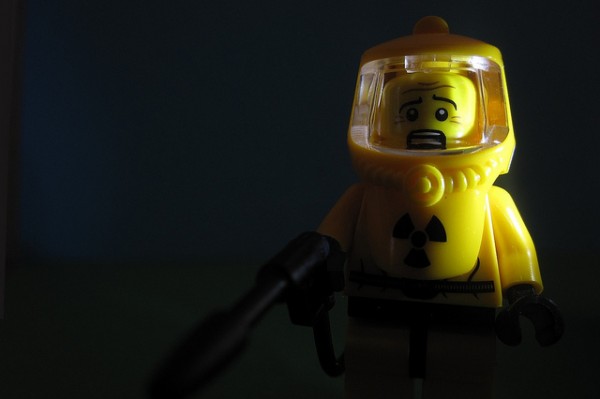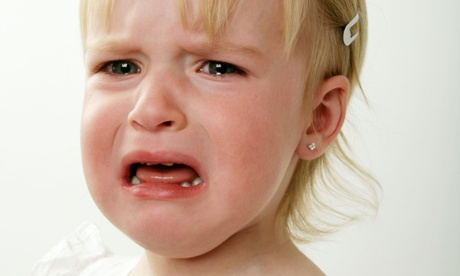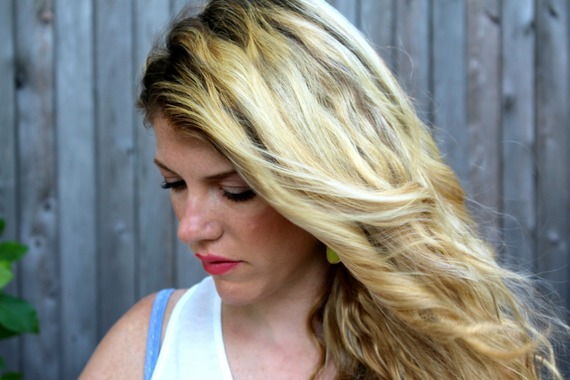Many of us have obsessions. But what's the difference between a healthy obsession and Obsessive Compulsive Disorder?
"It's part of every single activity I do, day in, day out. I'm never free."
Adelaide woman Sandra Pritchard is talking about her Obsessive Compulsive Disorder (OCD).
For a long time, Pritchard was in denial about her illness and hid it from people.
"It's humiliating when people see. When people notice something's a bit off," she says.
The 30-year-old told Insight she always knew she was an anxious person, but her condition worsened after the birth of her second child in 2009. She has since been diagnosed with OCD.
"I started probably when I was about six or seven, I used to sort things ... I started labelling toys and buckets of toys and that was when I was very young. I didn't have a choice; I wasn't doing it deliberately. It's been on-going and it's been chopping and changing ever since and just gathering steam."
"OCD has become a little bit fashionable in certain areas. The OCD itself, it's something that is significant and it's severe."
Everyday, Pritchard is plagued by invasive thoughts about dying, being sick, and worries about germs and contamination to her skin or food.
These fears drive her compulsive behaviour, which varies from excessive hand washing, rearranging and sorting things, pacing around the house, checking items for uncleanliness and even avoiding situations like social outings or using public transport.
"It's become so entrenched in my life that there is pretty much nothing that I do the normal way."
For the stay-at-home mum the condition is extremely debilitating and prevents her from completing simple tasks.
She is consumed by her illness - it takes a lot of effort just to get dressed in the morning and make a cup of tea.
"I feel because of my OCD it stops me enjoying life and I am now having to relearn how to do everything."
She also struggles with eating chicken due to a fear that it may not have been cooked property and she will contract salmonella.
She doesn't buy chemicals and cleans everything with baking soda and vinegar and avoids driving which is problematic as it means she sometimes can't take her child to kindy classes.
Pritchard says she has lost a lot of friends, and prefers to be at home, so that has turned her "into a bit of a hermit".
"I don't want my kids to have the same problem I have because it takes life from you … It has taken pretty much everything that I have. It's just consumed everything, it swallows everything to the point where you're just – you're hollow and you just exist and you say: what's the point?"
Around three per cent of Australians experience OCD in their lifetime, according to the Australian Bureau of Statistics.
The BBC reported that until the 1980s, experts thought two in every 1000 people were affected by OCD. Recent studies believe it is more common, affecting 2 per cent of the population.
Despite those numbers, a psychiatrist from New Zealand's University of Otago says OCD is an illness that is being over-diagnosed.
Dr Christopher Gale said there are misconceptions about what the condition is. He is worried the term is being applied too loosely between people who have obsessions and those with obsessive personalities.
"OCD has become a little bit fashionable in certain areas. The OCD itself, it's something that is significant and it's severe."
"If you've got thoughts which make you very passionate … even if they're taking over a fair amount your life, that's not an obsession. But when it's unwanted, it's intrusive, it's often repulsive, [and] that's when it becomes an obsession."
Dr Gale said he's dealt with patients who take eight hours to get their OCD stuff done. He said it becomes a health problem when it becomes uncontrollable and "starts ruining people's lives".
"Of all the anxiety disorders, and about one in 10 people have an anxiety disorder, this is the rarest and it's the most disabling anxiety disorder. People who've got OCD are tremendously challenged in what they're doing and they have huge difficulties in getting on with life … I've seen people who had very good careers have them completely destroyed as a consequence of this", Gale says.
Jessica Grisham, senior lecturer from the University of New South Wales, believes Dr Gale is too rigid with his definition of OCD. She sees OCD as a "dimensional symptom spectrum", and thinks people can have "a little OCD" in them.
"Like most disorders it is dimensional. So in its severe clinical form, you really see it impact across spheres of life, but we can see that in the community there are people who experience some kind of a little bit compulsion, some sort of repetitive behaviours, or some intrusive thoughts that don't quite reach the threshold of what we would consider a fully-fledged clinical disorder," she said.
Grisham was part of the first
longitudinal study of OCD following 1000 kids since birth, and said the disorder can be developed later in life as well as being triggered by a traumatic or stressful experience.
"I think there's still more that we need to know and certainly stress can impact. There's people who have vulnerability to OCD and experience events that exacerbate or bring that OCD out."
"I think there's pretty strong evidence that there is a genetic basis for the disorder. It tends to run in families and I agree with my colleagues that relative to some other anxiety disorders, there's a reasonably strong building base of evidence about the neurobiological foundations of the disorder," Grisham said.
"It's a horrible thing to live with."
Looking past the conflict between psychologists and psychiatrists on causes and treatment options for OCD, Pritchard just wants people to know how overwhelming the disorder is.
"I get a lot of misconceptions about what people think OCD is … it's a horrible thing to live with. You feel like there is someone shoving you towards doing these compulsions and it's such a fight and you can't give up," she said.
"One part of your head's going this is probably not sane' and another part's going oh but you've, just once more, just wipe, wipe once more, wash once more, go and check that thing one more. There's only so much you can do. It's tiring, it's distressing."
"I want people to know and I would hope that people would go out and seek help if they can, if it's not terribly far along."
She has been in and out of care services in Melbourne, Canberra and has made some progress recently working with Adelaide's Women's Health Statewide.















